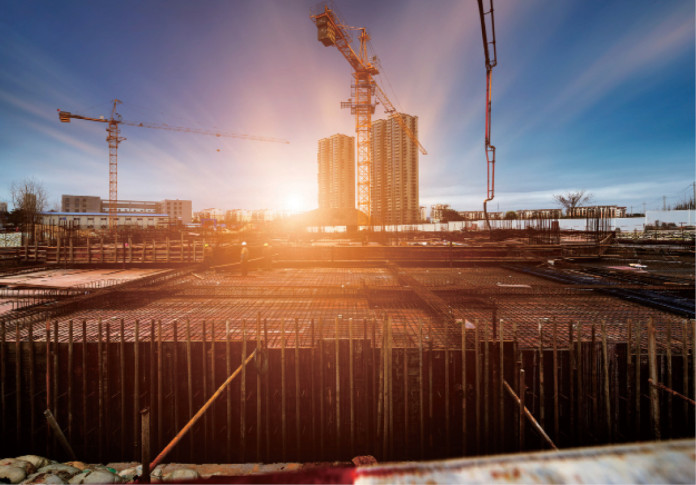As legal practice in the Public-Private Partnership (PPP) field evolved, it has triggered regulatory debate on the legal nature of such contracts and the choice of suitable dispute resolutions – whether relevant PPP disputes are arbitrable. This article is a response to such debate, and is a reflection of the author’s hands-on experiences in drafting the standard text of PPP contracts.

The legal nature of a PPP contract: two tiers originate from the purpose. The contractual purpose of PPP practice includes the welfare consideration, which belongs to the public section of the contract, and the commercial consideration, which often refers to a profitable outcome for the private section. Two tiers of the contractual purpose are made up of the administrative characteristic for the public, and the civil and commercial characteristic for the private, so that the contractual parties can conduct PPPs with their free will.
The establishment of the PPP contract relies on four elements. First, the establishment of the PPP contract relies on administrative actions including administrative licensing, administrative decisions and administrative supervisions. Second, the establishment of the PPP contract relies on the feasibility of the project. The feasibility is the key factor that runs through the entire process and involves a series of activities such as the feasibility study report, market tests, investment observation and the formation of the scheme. Third, the implementation of a PPP contract is associated with the state’s policies.
The Notice of the General Office of the Ministry of Finance on Regulating the Public-Private Partnership (PPP) Comprehensive Information Platform and the Notice of the State-Owned Assets Supervision and Administration Commission of the State Council on Strengthening the PPP Business Risk Management and Control of State-owned Capital of Central Enterprises, issued last year, bring profound influences to the field.
The most immediate effect is the increasing difficulty in financing. Fourth, the profit of a PPP contract depends on the long-term market economic environment. The life cycle of a PPP project can take up to 30 years. In particular, for projects with industrial development that contain several aspects such as infrastructure, construction of an industrial park and real estate development, the implementation is full of uncertainty and has a closed relationship with the surrounding economic development. From the above-mentioned perspectives, a PPP contract has important connections with administrative authority.
The legal nature of a PPP contract: administrative characteristic originating from legal relations. On the one hand, a PPP project is related to infrastructure and public products, indicating the state-owned and administrative characteristics. On the other hand, an upper control limit has been imposed on the maximum profit that a PPP project can make. The regulative document issued by the Ministry of Finance clearly shows that there are strong links between the administrative actions and activities in PPP projects such as completion, operation, performance appraisal, charges and subsidies.
In addition, the standard text of a PPP contract specifically introduces the intervention right of the government in particular circumstances. This right should be exercised appropriately.
The civil characteristic of a PPP contract originates from transaction practice. First, the bidding procurement of a PPP project is built upon party autonomy so that private investors can quote and make choices independently. Second, the methods of the bidding procurement, such as competitive negotiation and competitive consultation, are negotiable. Third, the private investors can carry out autonomous operations within the scope that the authority allows. Finally, article 43 of the Government Procurement Law of the People’s Republic of China provides that the Contract Law must be applicable to contracts for government procurements. So the equal and compensable characteristics of PPP contracts have been admitted.
In considering the complicated legal nature and characteristics of the PPP contract, in order to meet the demand of public interest and market operation, making the PPP contract a nominative contract in legislation is necessary. And the civil disputes arising from the PPP contract should be arbitrable.
The arbitrability of a PPP contract. PPP contract disputes raise a number of interesting issues in arbitration proceedings. First, differentiation of the legal nature of obligations of the government stipulated in the PPP contract can have effects on the jurisdiction and proceedings. Second, arbitration and other administrative options can overlap. Since the concluding process of a PPP contract is complicated, objection, complaint, administrative reconsideration and administrative litigation are likely to occur, bringing the problem of dealing with relationships among the different dispute resolution procedures. Third, the efficiency of the procedure, civil and state compensation, rescission when the purpose of the contract cannot be realized due to non-performance of the government, interest arrangements in compensation, and the effectiveness of liquidated damages stipulated in the contract can also be questions deserve discussing in arbitration.
Tan Jinghui is an arbitrator at Beijing Arbitration Commission/Beijing International Arbitration Centre (BAC/BIAC) and the director of City Development Law Firm (Beijing). BAC/BIAC’s case manager, Liu Nianqiong, also contributed to the English version






















